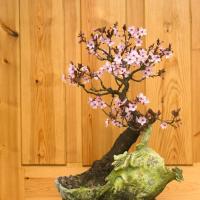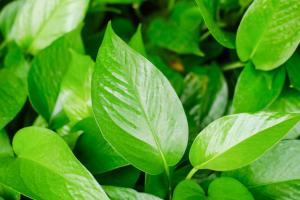Can I Plant Hostas Around a Black Walnut Tree?
Hostas are a favorite among many gardeners due to their ease of care, attractive foliage, and ability to thrive in a variety of conditions. However, one thing to consider before planting hostas is whether you have black walnut trees nearby or on your property. Black walnut trees are notorious for producing a chemical called juglone, which can be toxic to many plants, including popular garden favorites like tomatoes, peppers, and even some types of flowers.
The Effects of Juglone on Plants
Juglone is produced by all parts of the black walnut tree, including the leaves, twigs, bark, and even the roots. The chemical can be released into the soil and stay there for a long time, sometimes several years, even after the tree has been removed. When plants come into contact with juglone, they may show a range of symptoms, including yellowing, wilting, or stunted growth. In severe cases, plants may die.
Are Hostas Resistant to Juglone?
While no plant is completely immune to juglone, some are more tolerant than others. Hostas are generally considered to be relatively resistant to the chemical, making them a popular choice for planting around black walnut trees. However, this does not mean that hostas will always thrive in these conditions. The amount of juglone in the soil, as well as other environmental factors, can affect how well hostas grow.
Tips for Planting Hostas around Black Walnut Trees
Here are some tips to keep in mind if you want to plant hostas around a black walnut tree:
Choose Hosta Varieties Carefully: Some hosta varieties may be more resistant to juglone than others. Look for varieties with thicker, waxy leaves, which may be more able to withstand the chemical.
Test the Soil: It's a good idea to get your soil tested before planting anything. This will give you an idea of how much juglone is present and whether your soil is suitable for growing hostas.
Plant Hostas in Raised Beds: One way to avoid juglone-contaminated soil is to plant your hostas in raised beds or containers. This will ensure that they are growing in fresh, uncontaminated soil.
Water Regularly: Juglone is more likely to affect plants that are already stressed. Make sure your hostas are well-watered, especially during hot, dry spells.
Monitor Your Plants: Keep an eye on your hostas for any signs of stress or damage. If you notice any problems, try moving the plants to a different location.
Conclusion
While planting hostas around a black walnut tree can be challenging, it is possible with the right care and attention. By choosing the right hosta varieties, testing your soil, and following the tips outlined above, you can create a beautiful garden that thrives even in the presence of juglone. Remember, the key is to be patient and observant, and to always put the health of your plants first.

 how many times do yo...
how many times do yo... how many planted tre...
how many planted tre... how many pine trees ...
how many pine trees ... how many pecan trees...
how many pecan trees... how many plants comp...
how many plants comp... how many plants can ...
how many plants can ... how many plants and ...
how many plants and ... how many pepper plan...
how many pepper plan...






























